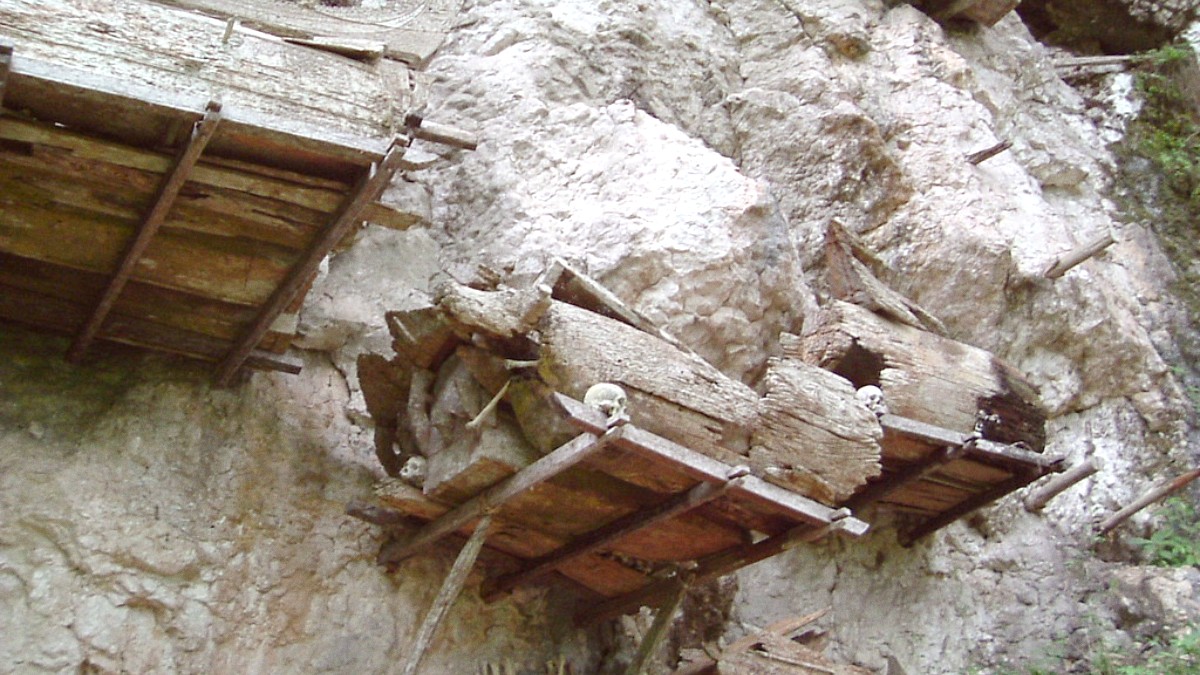
Sulawesi, Indonesia
The dry season, from June to September, has less rainfall and more sunny days. This period brings clearer skies and better conditions for outdoor activities and photography. The wet season, from October to May, brings more frequent and heavy rainfall, often as afternoon downpours. While rain occurs, it typically does not last all day, and sunny periods are still possible.
Rain during the wet season creates slippery conditions on hiking trails. Some rural roads may become tricky to navigate, with mud and occasional landslides making travel slower or requiring more robust vehicles.
Always check local conditions if planning remote treks during this time.
July - August
Drier weather for comfortable exploring; higher chance of observing major funeral ceremonies.
More tourists, higher prices for accommodation and tours; ceremonies can be crowded.
May - June, September - October
Pleasant weather with fewer crowds; good chance of witnessing ceremonies.
Occasional rain showers, especially towards the ends of the periods.
November - April
Fewer tourists, lower prices; lush green landscapes for photography.
Frequent heavy rainfall; fewer large funeral ceremonies.
July, August, or September are generally the best months. These periods offer the highest likelihood of finding a large, elaborate ceremony to observe.
The dry season, from June to September, is ideal for hiking and exploring natural landscapes. Trails are drier, and views are clearer.
May-June or October bring a good balance.
Enjoy cultural experiences with less crowding.
Comfortable conditions for exploration.
More intimate cultural encounters.
Often brings slightly lower prices for lodging.
The lush green landscape after the rains offers stunning photography opportunities.
Indonesia offers several visa options for visitors, based on nationality and length of stay.
Gather these documents for a smooth immigration process.
The local currency in Tana Toraja and throughout Indonesia is the Indonesian Rupiah (IDR). Exchange rates vary; as of early 2024, one US Dollar is approximately 15,000 - 16,000 IDR. In major towns like Rantepao, banks and authorized money changers offer currency exchange. ATMs are also available, though they may have withdrawal limits.
Tana Toraja is generally considered safe for visitors.
MMR, DTP, Varicella, Polio, and Flu should be current.
Recommended for most travelers.
Suggested for street food or rural travel. Consult your doctor.
Prevention is for common travel ailments.
Traveler's Diarrhea: Drink only bottled or purified water. Avoid ice unless from a trusted source. Eat hot, cooked food. Consider carrying Over-the-counter anti-diarrhea medication.
Mosquito-borne diseases (Dengue Fever): Dengue is prevalent. Use Insect repellent with DEET or picaridin. Wear long sleeves/pants. Sleep under a Mosquito net. Sunburn: Use High-SPF sunscreen, a Wide-brimmed hat, and Sunglasses. Stay hydrated with water.
Malaria risk in Tana Toraja is low but exists in some remote Sulawesi areas.
Rantepao has local clinics and RSUD Lakipadada, a district hospital. Serious cases may require evacuation to Makassar, Singapore, or Kuala Lumpur. Pharmacies are in Rantepao.
Tap water is generally not safe to drink. Rely on Bottled water for drinking and brushing teeth. Consider a Filtered water bottle for sustainability and safety.
Choose busy establishments for dining. Opt for hot, freshly cooked food. Peel fruits yourself before eating.
Tana Toraja is generally safe for tourists. Petty crime, like bag snatching, can occur in crowded areas like markets, but it is less common than in larger Indonesian cities. No specific high-crime neighborhoods exist in Rantepao or Makale for tourists. Maintain awareness of your surroundings and secure valuables, especially in crowded places.
Motion sickness on winding roads is possible; carry appropriate remedies. Rabies and Japanese Encephalitis: Consult a doctor for personalized advice if prolonged outdoor activities or animal contact are planned.
Especially during the wet season, for road access and trekking.
Practice general security, especially in crowded areas.
Seek medical advice on recommended vaccinations for your specific itinerary.
Carry contact details for your country's embassy or consulate in Jakarta or Makassar for lost documents or serious issues.